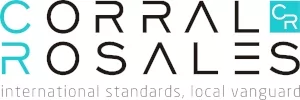Article 175 of the 2006 Health Law required medicines suppliers to exchange products that are about to expire in accordance with "... with what the corresponding regulation establishes."1
Almost 13 years after the aforementioned law entered into force, Ministerial Agreement No. 00015-2019 published in Official Registry No. 30 on September 2, 2019 issued the "Soon-to-be-expired General Medicine Exchange Regulations" (hereinafter, the "Regulations"), which are mandatory for all health establishments and warehouses of the institutions of the National Health System.
Due to the time it took to issue the regulation, doubts have arisen about theirs application. This article summarizes and clarifies the implemented procedure.
The procedure2 for the exchange of medicines in general, biological medicines and medicine kits containing medical devices (hereinafter and collectively, "medicines"), which are about to expire, has the following stages:
- Periodically, the person in charge of the information system of the pharmacy, medicine cabinet and / or warehouse of the institution of the National Health System will send the head of the requesting unit the stock of those medicines that are about to expire and subject to exchange.
- The technical manager of the pharmacy or warehouse and the staff in charge of the medicine cabinet of the institution will carry out the physical verification along with the warehouse keeper who will draw up the list of medicines subject to exchange.
- The head of the institution´s requesting unit will prepare the technical report of the medicines to be exchanged, taking into account the information sent by the technical manager of the pharmacy or warehouse or the staff in charge of the medicine cabinet and will request the supplier the respective exchange.
- The supplier will notify the head of the requesting unit of the date, information and quantity of the medicines to be exchanged.
- The head of the requesting unit will notify the technical manager and the warehouse keeper of the exchange to be executed.
- Once the technical manager and the warehouse keeper have been notified, the medicines that are about to expire shall be placed in the warehouse withdrawal area for the respective exchange.
- The person in charge of the warehouse will deliver the medicines that are about to expire to the supplier. Then, a reception delivery document3 will be drawn up and signed between the person in charge of the warehouse, the head of the requesting unit and the supplier.
- The supplier will deliver the "new" medicines to the warehouse manager for the corresponding technical and administrative reception, in which the quantity and technical specifications of the medicines will be verified in accordance with the internal procedures that each institution of the National Health System has for this purpose.
- A record will be drawn up and signed4 for the receipt of the "new" medicines between the person in charge of the warehouse and the supplier. Said act must be verified and signed by the head of the requesting unit.
- The institution must prepare the complete file on the exchange. The responsibility for filing said files shall be laid down in the instructions drawn up by each institution.
Regarding the procedure, the following requirements must be taken into account:
- Supplier must withdraw the medicines subject to exchange up to one month before the expiration date.
- Medicines that are about to expire must be exchanged for medicines with the same technical specifications and a shelf life of at least twelve months.
- Withdrawal of medicines that are about to expire and the delivery of the "new" medicines may be carried out at different times, subject to an agreement between the parties, provided that the provisions of the Regulations are complied with.
Here are some details regarding doubts that may arise in the application of the Regulation:
- Exchange of medicines that are about to expire is regulated regardless of the date on which they were purchased. Therefore, it also applies to the exchange of medicines that were purchased before the Regulation entered into force.
- A maximum of one exchange for each acquisition will be
accepted5. In addition, for exchanges
involving the health establishments of the Comprehensive Public
Health Network – RPIS, it must be taken into account that:
- The percentage of exchange cannot be greater than fifteen percent (15%) of the total volume of the medicine purchased in each acquisition process.
- In purchases through corporate reverse auction or other joint mechanisms, the indicated percentage will not be applied, but the provisions of the specifications prepared by the Commission of Public Purchases. In no case may they contemplate a percentage higher than ten percent (10%).
Although the Regulation does not expressly6 indicate it, it is considered that these percentages would apply only to the replacement of the medicines and not to their withdrawal, in accordance with the provisions of article 1757 of the Health Law. Therefore, the supplier would have the obligation to withdraw all the medicines that are about to expire, but their replacement will be limited to the percentages established in the Regulation.
- In the case of vital8 medicines or medicines that are difficult to access for rare or orphan
- 9 diseases, which are about to expire, the Regulation establishes that the supplier must carry out the number of exchanges that are necessary, without considering the percentage of medicine to be replaced in each exchange.
- If the supplier justifies that it cannot make the exchange with the same products, the Regulation allows it to be carried out with other medicines with an equivalent economic value. If this is not possible, the supplier, in agreement with the buyer, must reimburse the institution the respective value.
In conclusion, while the Regulation for the exchange of medicines is welcome, it is necessary for the authority to clarify rules that may lead to confusion, without waiting for conflicts to arise from different ways of interpreting and applying the Regulation by the acquiring institutions.
Footnotes
1 Art. 175.- Sixty days before the expiration date of the medicines, the pharmacies and medicine cabinets will notify their suppliers who have the obligation to withdraw said products and exchange them in accordance with the provisions of the corresponding regulations. (highlighted out of text).
2 Ministerial Agreement No. 00015-2019, Official Registry 30, September 2, 2019, Art. 9.
3 In accordance with number 6 of article 9 of the Regulation, based on this act, the institution will generate the release of the medicines in the inventory control information system that it has.
4 In accordance with number 8 of article 9 of the Regulation, based on this act, the institution will generate the entry of the "new" medicines in the inventory management system that it has.
5 Art. 1 of the Regulation defines the acquisition of medicines as "... the process by which medicines are purchased in general, biological medicines or medicine kits that include sufficient medical devices to meet the expected demand, according to the corresponding contracting mechanism and based on the approved schedule. "
6 Ministerial Agreement No. 00015-2019, Official Registry 30, September 2, 2019, Art. 12.
7 "Art. 175.- Sixty days before the expiration date of the medicines, the pharmacies and medicine cabinets will notify their suppliers, who have the obligation to withdraw said products and exchange them in accordance with the provisions of the corresponding regulations. " (Highlighted out of text).
8 The Regulation defines vital drugs as those indispensable or irreplaceable drugs to safeguard the life or alleviate the suffering of a user / patient or a group of users / patients. Each health establishment will define its list of vital drugs, through the Pharmacotherapy Committee or whoever takes its place
9 The Health Law defines rare or orphan diseases as those potentially fatal, or long-term debilitating, low prevalence and highly complex diseases.
The content of this article is intended to provide a general guide to the subject matter. Specialist advice should be sought about your specific circumstances.

